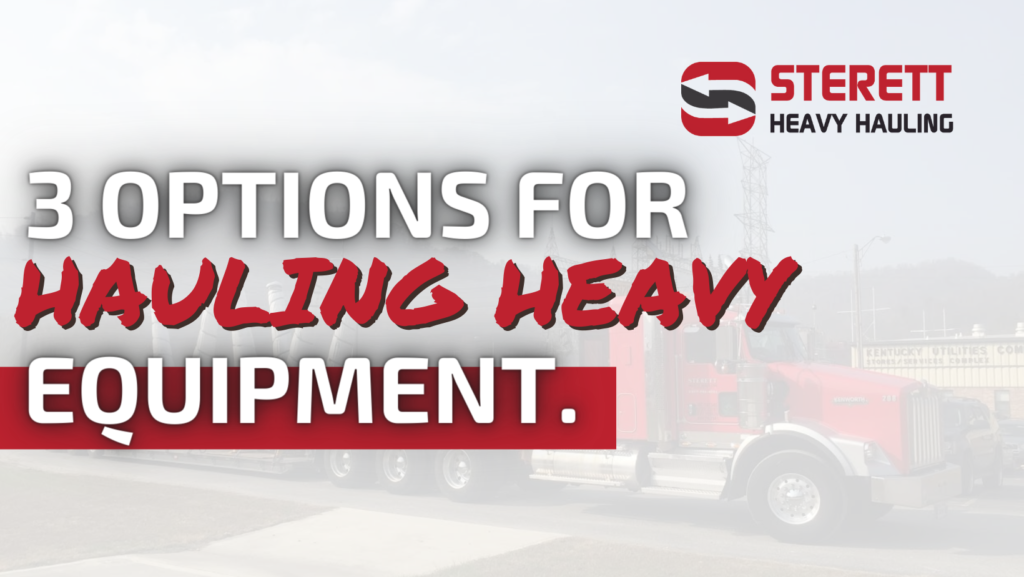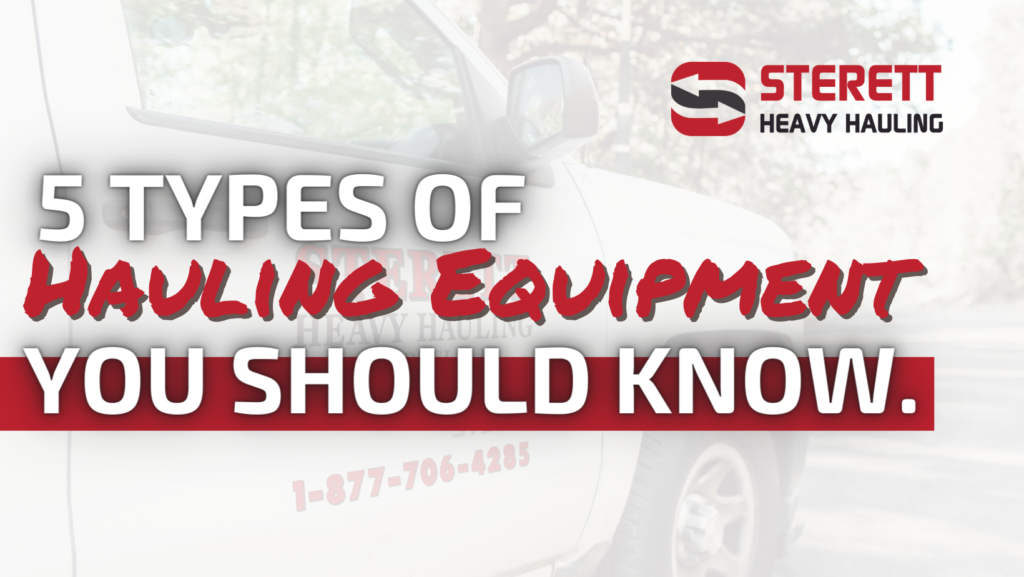As a task that focuses on transporting expensive, heavy, and difficult-to-carry goods for long hours, hauling heavy equipment can be as hard as it sounds.
Despite the fact that most routes for heavy equipment hauls follow a straightforward goal of moving the load from point A to point B, doing so in the safest and most efficient way possible can sometimes be complicated.
From devising the route you’ll need to follow to compiling the necessary papers and permits for the task, hauling heavy equipment entails all sorts of vital processes— but there’s another task that’s just as important as everything else: choosing the right type of trailer to work with.
The Importance of Choosing the Right Trailer
Regardless of whether you work in the construction, manufacturing, or landscaping industries, safely moving any type of heavy equipment is a process that calls for having the right trailer. Without the right trailer to hold all your equipment in place, you’ll inevitably damage every item to the point that they won’t be able to perform as efficiently or effectively as they should.
A Few Options Worth Considering
Given the sheer amount of options available in the market, however, picking the right type of trailer for your business or client base’s needs can be far more difficult than expected— unless you have the right notes in mind.
If you’ve been meaning to improve the entire experience of moving your precious equipment back and forth with a greater amount of ease and safety, here are a few options you should definitely consider:
Flatbed trailers
Commonly regarded as one of Kentucky’s most common trailer options, flatbed trailers feature a characteristic standard open trailer that is capable of storing nearly every and any piece of equipment a working professional has. Thanks to its structure that positions the entire deck over the wheels themselves, flatbed trailers are capable of hauling even the heaviest of payloads with ease—and are a whole lot more convenient because of various features such as built-in ramps!
Low-profile trailers
If you constantly find yourself driving through routes that have a near-endless amount of height-related hazards and imposed height limits, then it’s safe to say that low-profile trailers are the option for you. With the use of a low-profile trailer, you can transport taller equipment without incurring fines or damages for going over height limits, all while enjoying better handling and safer loading experiences.
Tilt trailers
As opposed to other common types of trailers, tilt trailers have an easier loading experience without the need for a ramp because of how they’re built and structured altogether. Through the help of a hydraulic lift, a tilt trailer can easily handle any kind of load for easier loading and unloading, which keeps both you and your employees as safe as possible.
Conclusion
Safely hauling your heavy equipment or any type of load—regardless of what industry you work in—is a task that calls for having the right trailer.
Should you find yourself in need of a high-quality trailer for your heavy hauling needs at an irresistible price, get in touch with us today to see how we can help!



